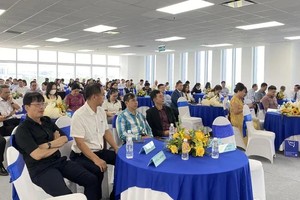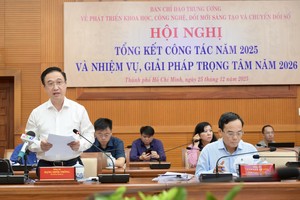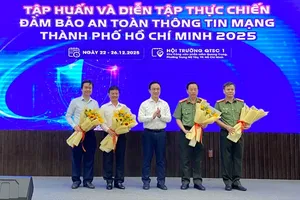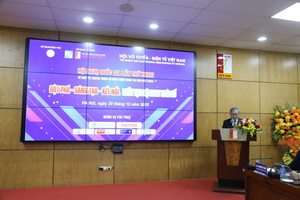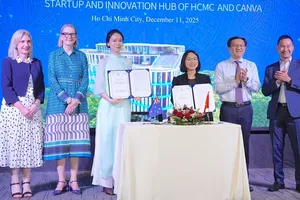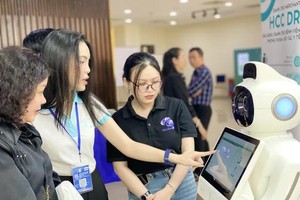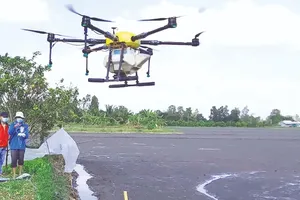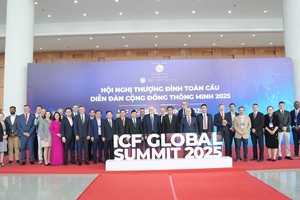
HCMC has digitalize its many databases for more efficient state work. Related documents in public services are now managed digitally. Administrative files and reports are processed and stored systematically, making it easier for further analysis, statistics preparation, and conclusion provision. This, in turn, speed up wise decision making.
Take the digitalization of civil status documents as an example. According to Deputy Director of the HCMC Department of Information and Communications Vo Thi Trung Trinh, since the city aims at providing all digital public services, it has until now digitalized 60 percent of its residents’ civil status documents.
She estimated that in June 2021, this valuable database will be formally introduced for exploitation in additional to the current one provided by the Ministry of Public Security.
Using this database, other state departments and agencies are able to develop their own specific ones for various tasks of managing local educational status and predicting the number of schools to answer the public’s need, medical history documents, forecasting the future population trends and gender balance.
HCMC has introduced a series of useful mobile apps to serve its dwellers. Some notable ones are traffic status report to avoid congestions (developed by the HCMC Department of Transport), urban flooding warning UDI Maps (by HCMC Urban Drainage Co. Ltd), HCMC planning to look up land-related information, SYT TPHCM to search for medical information and clinic or hospital locations (by the HCMC Department of Health).
Obviously, these applications have proved their effectiveness in all aspects of life.
The HCMC Department of Information and Communications is going to finish its data processing platform in order to integrate current databases into one common database and establish the city’s open database ecosystem. This will be the first essential step in the digital transformation process of the city to serve its residents.
Thanks to digitalization transformation, residents and businesses in HCMC just need to provide their personal information once for all state agencies to use. What is more, now the interaction between citizens and the local government increases due to helpful apps.
The municipal authorities have set a goal to run 50 percent of level-3 and level-4 public services online in 2025. In the next 5 years, its shared database and open database ecosystem will be linked to the national ones for socio-economic growth.
Other goals are for the city to enter the national top-5 regions as to e-government, to have its digital economy account for 25 percent of its Gross Regional Domestic Product (GRDP), and to increase work performance by 7 percent each year.
In 2030, HCMC will have all level-4 public services provided online via different smart devices, including mobile phones. All city-leveled and district-leveled administrative documents, as well as 95 percent of ward-leveled ones, are processed online.
At that time, the city will be one of the two leading areas in Vietnam as to e-government, with its digital economy occupying 40 percent of the GRDP, its work performance increasing by 9 percent per year. The rate of city dwellers having an e-payment account will be over 85 percent.
